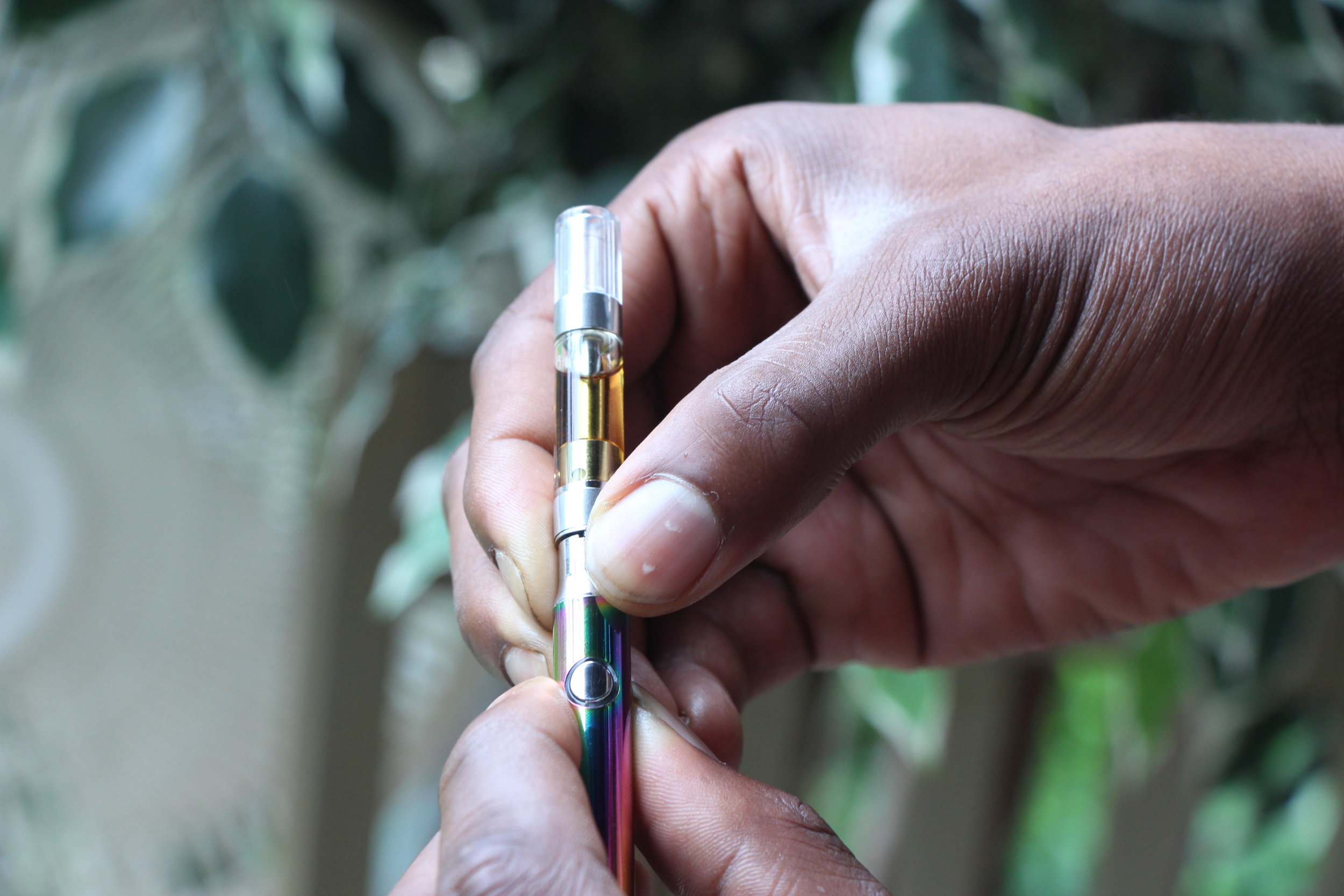A Fair Shake: Black and Brown Chicagoans Fight for Legal Marijuana as a Civil Right
EDITOR'S NOTE: "A Fair Shake" is a three-part series on how legalized marijuana affects communities of color in Chicago. This third story discusses the way marijuana is currently policed and what changes in the law could look like. Read more about the lack of black and brown ownership in the industry in the first story and the fight for access in the second story.
Despite similar marijuana usage across all racial groups, Chicago has seen incommensurately more arrests and tickets given in black and brown neighborhoods than in predominantly white ones, even since its possession was decriminalized in the city in 2012. Most people in the industry don’t see that changing dramatically, even when weed is recreationally legal for everyone.
According to public records from the Chicago Police Department, there have been 45 arrests so far in 2018 for possession of less than the criminal limit of 10 grams. Forty-two of those arrests were people of color. Thirty-nine were on the South and West Sides.
“We’ll probably be harassed more. They going to tell you don't smoke in the street, don’t do this, don’t do that. You got to go through all of those games,” said Naajidaah Jones, a former dispensary employee and current owner of a marijuana consultant company.
Until late August, Illinois was the only state with a fingerprint-based background check requirement to qualify for medical marijuana, which made it a battleground for the equal access fight. Under the old standards, anyone convicted of a drug felony was barred from obtaining a medical marijuana card.
Jones believes the policy was designed to exclude people of color, who are already disproportionately impacted by high arrest and incarceration rates for marijuana-related offenses. It’s the reason she got heavily involved in advocacy work. The expansion measure was passed as a solution to the spread of the opioid crisis to predominantly white communities.
Jondae Scott works at Mission Illinois on the South Side and also runs an educational blog, Clear As Smoke, that highlights women of color in the marijuana industry. She hopes the state going recreational will awaken people to what is happening to black and brown folks and their access to cannabis. “I already know that it's not going to change everything… there will still be a color line that won't be crossed immediately,” she said.
Data reported by WBEZ reflects this double standard. In 2017, Chicago police recorded the lowest number of arrests for marijuana since 1968, yet rates have dropped at markedly higher rates in predominantly white neighborhoods than their black and brown counterparts. In areas like Logan Square and Uptown, arrest records for cannabis have dropped by 97 and 96 percent over the last decade, respectively. It’s a much different story in communities like North Lawndale on the West Side, where arrests only decreased by 53 percent, or the 84 percent decrease in Grand Boulevard neighborhood on the South Side.
Scott and Jones both stressed the need for law enforcement and the communities to meet in the middle on this issue. “Racism still exists and whether cannabis was the center of one of the problems, it's not the center of the whole problem,” Scott said.
Donte Townsend, founder of Chicago NORML, works with his organization and others in many capacities to ensure that black and brown folks get a fair shot when it comes to legal weed. This summer, they joined NORML chapters nationwide in Washington D.C. to lobby Congress for federal marijuana reform. They also focus on bridging the gap between the community here and local lawmakers, partnering with Cabrini Green Legal Aid over the summer to train those with convictions to get their records expunged to meet the old requirements.
“With our fear of being involved in cannabis loosely and directly associated with the numbers that we hold in jail and in court for our part in cannabis – with those parallels – it's gonna be interesting and a little bit painful to see the reality of what recreational cannabis really means,” said Jones. “Without the people in jail right now, without the black market, without the street dealer, we wouldn't have an industry … I just don't want the culture of cannabis with black people to be stuck in that arena of ‘will we always be better off illegal?’”
There are many social factors to overcome before marijuana is widely accepted, but the institutionalized barriers are the ones black and brown folks in Chicago are tackling head on. “Many people of color, especially African-Americans, don't know that it's legal and that cannabis is growing and that it's not only medicine, but it's a form of civil rights,” said Scott.


